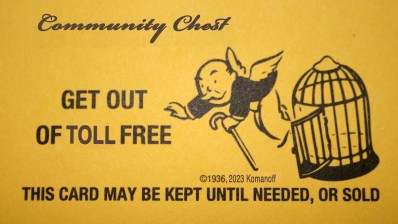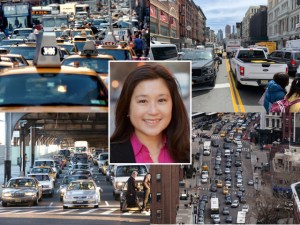The Introduction of a New Order of Things
In his essay, "Valuing the Commons," Charles Komanoff discusses congestion pricing and carbon taxes and the difficulty in convincing people to pay for their negative externalities. Komanoff wrote it back in June and it’s on Grist this week:
What, then, is standing in the way of congestion fees and a national
carbon tax? The power of
an entrenched minority, for one thing. In New
York City, fewer than one in 20 working residents drives toll-free into
the intended congestion charging zone, but they know who they are and
are not shy about protecting their self-awarded entitlement to a
toll-free commute.Conversely, the benefits of congestion pricing will be broadly
distributed but not life-changing. Indeed, judging from polls, many New
Yorkers don’t even realize they are potential beneficiaries."Losers cry louder than winners sing," wrote University of
Michigan professor Joel Slemrod in explaining the near-impossibility of
overhauling the U.S. tax code, and the same holds true for the
congestion fee and the carbon tax.What is more, the benefits
from road fees or carbon taxes aren’t just diffuse; because they lie in
the future they are by necessity uncertain.
"There is nothing more difficult to take in hand," Machiavelli observed in The Prince,
"than to take the lead in the introduction of a new order of things …
the innovator has for enemies all those who have done well under the
old conditions, and lukewarm defenders in those who may do well under
the old conditions, and lukewarm defenders in those who may do well
under the new."That is why enacting the Bloomberg congestion plan is so hard, and
so necessary. America’s civic polity is stuck in traffic, so to speak.
Getting it moving again will require us to imagine something other than
permanent stalemate and act upon that vision.


